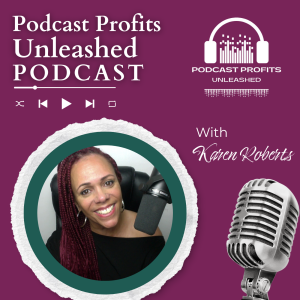

Turning “Charity Cases” into Win/Win Situations
In this episode, Tina Corner Stolz discusses the most effective techniques for handling situations where a member is unable to pay financial dues for a period of time or is uncertain about future payments. Our focus is on fostering long-term solutions that benefit both the member and the group without sacrificing either party's interests.
We explore strategies that ensure fairness, respect, and mutual benefit, transforming potential charity cases into triple wins. By understanding the member's perspective and desires to avoid being perceived as a charity case, we discover approaches that eliminate resentment and foster a sense of fairness and respect. Tune in to discover how to navigate these challenges while maintaining harmony and value within your group or organization.
Member Journey Infographic
_______________________________________________________________
MASTER BUILDER: 8 educational tracks to teach you to become the best you can be running your business mastermind groups. Download the tracks here: https://tinacornerstolz.com/learning-center/
LICENSED PARTNER: Engage with us at our most premium level of support, training, and certification HERE . See why we have a 98% success rate that everyone will launch their groups
FIRST EVER BOOK ON MASTERMINDS: Get your own copy of "Your Seat at The Table, How to Create and Run Your Own Peer Advisory Councils" HERE I give away all my secrets and inside tips to being successful in running your own masterminds. Get exclusive access to checklists, templates, forms, and more resources in the book.
GET FREEBIES: Download articles and checklists on the challenges of running a peer group, what makes a successful group, types of niche groups, and more here: LEARN MORE HERE
CONNECT WITH ME HERE:
www.linkedin.com/in/tinacorner
www.linkedin.com/company/lxcouncil
SCHEDULE A CALL WITH TINA
Episode Transcript:
00:00:00:00 - 00:00:27:22
Speaker 1
Hello and welcome to Mastermind Mastery, the podcast for professionals who want to create and run successful peer advisory councils, or as we call them PAX for short, or they're also known as peer groups or business mastermind groups. I'm your host, Tina Corner Stults, founder of Alice Council, where I've been in the industry running groups since 2005 and now help those like you with education, certification and support wanting to do the same.
00:00:27:24 - 00:00:51:24
Speaker 1
At one time I ran ten groups, nearly 100 members, and sold microbes for a good multiple and recently released my second book, Your Seat at the Table How to Create and Run Your Own Peer Advisory Councils, published by Forbes and Grateful to you that it's an Amazon bestseller. I invite you to join each week where we share strategies and techniques to successfully launch and become a master of running your packs.
00:00:52:01 - 00:01:11:08
Speaker 1
You'll hear insights, perspectives, do's and don'ts learned from my and my guests mistakes, successes, and get the inside track to key takeaways. Each time we have a guest, we'll be having a bit of fun. So are you ready? Let's get going and dive into today's episode.
00:01:11:08 - 00:01:53:09
Speaker 1
Hello everyone, and welcome to another episode of Mastermind Mastery. I'm Tina Corner Stolz your host and today that topic is Charity Case. What do I mean by charity case? The question today that I want you to ponder and think about is what happens when you have a member that you feel like you have to have or give charity to, meaning a member that can no longer afford the dues of membership or a member that needs a temporary reprieve of the dues because of some financial crisis.
00:01:53:11 - 00:02:20:21
Speaker 1
So what do you do? So I today am going to give you some out of the box thinking some ways in which you can create a win win for this scenario and also give you some ideas to consider are when the situation arises. Because every situation is unique. It's unique to where you are with your groups, it's unique to the culture of the group, it's unique to your goals.
00:02:20:23 - 00:02:42:19
Speaker 1
It's also unique to the culture you have built with your groups, and it's unique to what your overall. Basically values are. So today what I want to lead you through are just some things to think about, things that I have done and tried in the past, and other people that are out there writing groups that I know have done.
00:02:42:21 - 00:03:08:18
Speaker 1
And at the end when you have this situation or any of you that might have it today, you'll feel better about what to do. So if a member let's get started, right? So if a member can't continue to pay again temporarily, or maybe it's just you don't even know how temporary it is, but they are a right. That member.
00:03:08:20 - 00:03:39:06
Speaker 1
So what does that mean? They attend, they add value. There are peer leader. They have a great business. You know, they set the stage, they're helpful, all etc.. So there's many, many benefits that that member brings to the table. You also have to think about if they don't continue. What that does. So is it disruptive to the group to have a change and have someone leave, especially when they're an extremely valuable contributor?
00:03:39:08 - 00:04:00:00
Speaker 1
You know, do you need to take a look at and encourage to think long term versus short term? And what's the right thing to do for the members? Meaning what is the right thing to do, not at the expense of one or the other, The expensive one or the other is either at the expense of the member or the expense of you.
00:04:00:02 - 00:04:21:06
Speaker 1
So right thing for you and not the group is a lose when and the right thing for the members and not you is still a lose win. So today I'm going to talk about win win because many times I know in the early days of when I was running groups, I always felt like it was going to be a lose.
00:04:21:06 - 00:04:45:21
Speaker 1
When and how can I figure out a win win in this scenario? So let's assume you definitely want to save this member and have them still involved because it is the right thing to do. Maybe the right thing for the group, right? That you don't want that disruption. So how can you make it equitable? So you ready? Here are some ideas.
00:04:45:23 - 00:05:22:11
Speaker 1
One is you can offer a trade of time. Meaning maybe they can help you recruit new members. So can they refer, attend workshops, a marketing event that you might have support you in that give a testimonial at that event, Stand up, you know, share their story, etc. Maybe they can introduce you to centers of influence, right? Other people that can help you grow your group or add value to your group, whether it's through speaking or workshops or referring.
00:05:22:16 - 00:05:48:03
Speaker 1
Right. Again, testimonials. But let's take it a step further. Would they video a testimonial right for you that you can utilize in addition to something in writing? Or are they willing and able to step up and talk to prospects to help you move that prospect along to closing for the group? Maybe they can even be a mentor to new members.
00:05:48:03 - 00:06:15:15
Speaker 1
So when you have a new member on board, if maybe part of your process is you like to connect them to existing member to showcase, you know, how it is for them to get the most value out of being involved in a group. Maybe they will step up and be a mentor. Maybe they'll take the lead on a project that you might have for the group, like planning the next social or a retreat, or maybe even doing things like, I know one gentleman who's running groups.
00:06:15:17 - 00:06:41:02
Speaker 1
A member in this particular scenario, he raised his hand in order to do a spreadsheet to help the group track some KPIs that they were tracking. So he stepped up to create the spreadsheet. He's going to manage it. He's going to work with the members in order to input their data. Of course, the obvious is a side from time that I just talked about is financial.
00:06:41:04 - 00:07:08:09
Speaker 1
So what can you do financially if they already can't pay their dues? Well, there are lots of options that you can do. So, for example, so they don't feel like a charity case because let me stop for a minute and spend a moment on this. If a member can't pay, they already feel bad coming to you to even tell you that, because why?
00:07:08:12 - 00:07:42:12
Speaker 1
Well, if they can't pay, that means something's wrong with the business and they have to own up to that. They're probably embarrassed as well, because to get to that point is probably a point that is extremely uncomfortable for them. And it's probably been something they've been struggling with for a while until they finally now have to come to you and ask for either the fact that they need to leave because they can't pay or just to have a conversation with you about it.
00:07:42:14 - 00:08:02:07
Speaker 1
So, first of all, no one wants to be a charity case. They want to pull their weight. And if they can't pull it financially, where else can they pull it in any of those other ways I just went through in regards to time. But the one thing I want you to think about is if you were in their shoes, how would you feel?
00:08:02:09 - 00:08:29:23
Speaker 1
Because this will help you come up with a win win scenario. What would you want to do if you were the tables turned in the scenario where you couldn't pay a vendor that you valued? Right? And you are in a great place where you are the one running your business, running your groups. Okay, You can make that decision.
00:08:30:00 - 00:09:12:02
Speaker 1
You are the CEO of running your groups, so you have the wherewithal and the power to do what you believe is a win win. So when it comes down to financial sell as an option, keep in mind that that member doesn't want to stay on board and not not feel like they're still contributing to their membership. So when it comes as an option of money, some things for you to think about is that I've used so many times in the past when this is the case is I say, okay, let's talk about some options.
00:09:12:04 - 00:09:42:03
Speaker 1
What would you pay that will not cause you stress? I don't want you to chase something that is going to cause stress, which is the reason we're having this conversation, but paying something. Let's take a look at that and you're quiet because I will tell you, whatever you have in your head as far as what would be a win win for payment.
00:09:42:05 - 00:10:04:17
Speaker 1
Most of the time they have a bigger number. So throw it out there. What could they do? And whatever it is. And first of all, by the way, every time you do that, they will typically probably come back and ask you, well, what do you think? And I will never answer. I don't know. I don't know the detail and the severity and the situation that you're in.
00:10:04:19 - 00:10:40:17
Speaker 1
This is you. I will tell you that I will not be offended by anything that you tell me. I just want it to be the right number. So that is important to articulate. You might be offended. I think the number that comes out, but you want the real number. And the way to get that is to let them know that you're really seeking genuinely and know what that number is, because at least that's a starting point of a place for you to be able to work from.
00:10:40:19 - 00:11:14:22
Speaker 1
So let's say for example, for easy numbers that your your monthly membership dues are $1,000. And I asked this question to that member and they might say, well, $200. So then at that point you have to have further conversation. Okay. And say, okay, so $200 So what is your thought about how long that you feel you're going to need to be able to pay that reduced amount of $200?
00:11:14:24 - 00:11:39:08
Speaker 1
And I want you to be conservative. So two things. It can come back to tell you. One, they don't have a clue. Okay. Or two, they will say, I'm pretty confident it's just a 90 day window. Okay. So now you have a decision to make. If it's a 90 day window, are you going to be happy with that $200 for 90 days?
00:11:39:13 - 00:12:00:13
Speaker 1
So are you happy with the fact that you're going to leave on the table 800 a month for three months? Is that worth it to you? Because what you're weighing is opportunity cost. If you say no and that member has to leave, you have to replace that seat. Can you do it in that amount of time? Do you have somebody already in the wings to do that?
00:12:00:15 - 00:12:20:14
Speaker 1
And is that for the best thing for the group in addition to you? So if you don't have a new member ready to go in, you're going to have a vacant seat and you're going to lose that thousand dollars anyway until you have that new member that comes on board. You got to think that through and back to
00:12:20:16 - 00:12:46:01
Speaker 1
the other aspect would be the impact on the group of switch out. It could be positive, but we're back to the original question is, is this a member that you want to save? And it's valuable to do so for the long run. We're thinking here about the long run, not the short run. You're running a business, you are the CEO.
00:12:46:03 - 00:13:15:24
Speaker 1
You in making a decisions, are wrapped around both a short term and long term decision. I'm encouraging you to think about it being a long term decision because membership is long term. Membership in your group is strategic for them. It is for their life, ideally, right the whole time. And they're running the company. They have built this in as the key strategy of their entire initiatives as a company.
00:13:16:05 - 00:13:39:24
Speaker 1
For that CEO to be in your group. So it's a long term play and if you're trying to instill that mental methodology philosophy with your members, this is a great way that does that because you're in it for the long term. And if you show them you're in it for the long term, they will act and be in it in the long term for you as well.
00:13:40:01 - 00:14:07:01
Speaker 1
So now we're back to what if they said, I don't know how long it's going to take. Okay. So a tactic here for a conversation to go like this is. Well, if you don't know, how about if we do this, $200 a month is good. We're going to go with that in 90 days. I'm touching base with you and we're going to talk about how things are going.
00:14:07:03 - 00:14:28:09
Speaker 1
You still feel good about the $200 and how are things looking? Do you think you'll be able to increase that $200 and bridge the gap between that and a thousand? Will you be able to jump to the $1000 right away? I don't know. But you set a date or a check in. It takes the pressure off of how long is this going to last?
00:14:28:11 - 00:14:44:10
Speaker 1
How do I get an update? I just call them. If I just call them, they're going to know this is what I'm following up on. You take all of that off the table to pick a date, put it on the calendar when you're going to check in on how things are going and then you let it go. You don't have to think about it anymore.
00:14:44:10 - 00:15:12:15
Speaker 1
And neither do they. But the other thing is that you can do is say, okay, for $200 and go back to those non financial possibilities of great and can we do this to bridge that $800 gap. Would you help me do this this, this and this to help build the business? I could really use your help. That would mean a lot to me.
00:15:12:17 - 00:15:41:07
Speaker 1
That's how you can bridge that gap. Another tactic that I have used is say, okay, $200. Do you think that you could do $200 and then maybe next month do $250 or maybe and then the next month and kind of do some sort of ramp. So if that number they give you is really low for you, try to ramp conversation.
00:15:41:09 - 00:16:17:07
Speaker 1
But again, you're not trying to create a ramp up that becomes so uncomfortable, you're back to square one, then you haven't really accomplished a whole lot. But it works. You can also say, can we roll that $800 for three months and spread it out over a year period of time where you can gain back what you've lost? So when they're back to being able to pay regular dues of a thousand, maybe instead they pay $1200 for a period of time, get me? Are you following?
00:16:17:09 - 00:16:53:12
Speaker 1
So it allows you to recoup your money. Granted, you have to decide if you're going to throw an interest in there or not. But what you do is you work out a better word, a future payment plan when they're back on their feet and they're successful. So the biggest key, though, is, is setting the date for the follow up and to check in how it's going, because, number one, the last thing that you want to have happen, which I have had happen to me, which then if I didn't set the date, which is what caused me this scenario to set dates for the future, is that when I followed up like 90 days later, the
00:16:53:12 - 00:17:19:02
Speaker 1
member was like, yeah, yeah, I am so sorry. I could have started paying you last month. Are you kidding? Like, where's the respect here or from a member that you have put financially right on this kind of a charity case and they show up to their meeting in a brand new car? Yes, I have had that happen.
00:17:19:04 - 00:17:38:21
Speaker 1
And how much you just want to go, what in the heck? But again, you have to like talk to them because maybe the car came about for some bizarre thing. It had nothing to do with the fact that you don't have the money to pay, but it's just not a good impression. Right. And it makes you resent the member.
00:17:38:21 - 00:18:04:20
Speaker 1
So you want to take responsible resentment off the table? Completely off the table. So today, I hope what you're walking away with are some non-financial tactics, some financial strategies. And I'm sure out there many of you have some other ideas. And if you do, we would love to hear them. So then we can share them with our whole audience.
00:18:04:22 - 00:18:31:18
Speaker 1
Your experience in regards to what you have done when members suddenly can't pay their full dues, but you want to keep them as a member and create a true when when so you feel good about it, The member feels good about it, and you can concentrate your mindset and your mind capacity on continuing to run excellent meetings for the best member experience.
00:18:31:20 - 00:18:45:01
Speaker 1
So thanks today for joining Mastermind Mastery and I look forward to next week seeing you guys all again on another episode. And until then, go make it happen.
00:18:45:01 - 00:19:14:14
Speaker 1
Hey, moderators of groups. Thank you so much for listening to today's podcast. To get access to today's show notes and exclusive content and resources, visit Tina Corner. Stoltze Tor.com Backslash podcast or elect's council dotcom, where you can also become part of an exclusive online community. Attend our academy or get free resources, templates, checklists and more. And you can even contact me there as well.
00:19:14:16 - 00:19:39:13
Speaker 1
So if this episode resonated with you and you know someone who can also benefit from listening, please share with them by taking a screenshot and even posting on your social media. I also love reviews and appreciate hearing from each of you those actually doing this wonderful work. Please tune in next week for another episode of Mastermind Mastery and I'll close by sharing something my mentor did.
00:19:39:13 - 00:20:07:23
Speaker 1
After every learning moment, he shared a shiny pebble from his pocket with anyone he passed knowledge to and asked them to forward that pebble knowledge on. So now I encourage you to go case on a pebble. The takeaways you learned today to either your existing groups or fellow peers. Now go make it a great one.
More Episodes
All Episodes>>Create Your Podcast In Minutes
- Full-featured podcast site
- Unlimited storage and bandwidth
- Comprehensive podcast stats
- Distribute to Apple Podcasts, Spotify, and more
- Make money with your podcast












